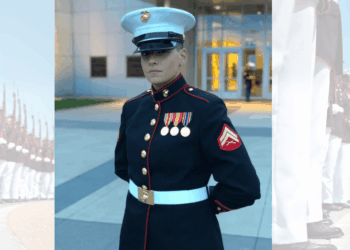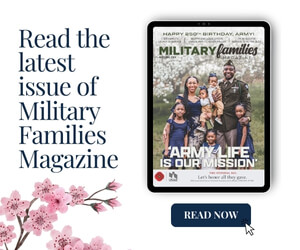The past few weeks have been hard to stomach. More innocent Black American citizens have been murdered, prominent white professionals have been caught making racist comments, and now there’s a sickening social media fad called the “George Floyd challenge,” where a white person kneels on someone’s neck. The veil has been lifted to reveal ugly truths about racism and injustice in our country.
I saw about five seconds of Floyd’s murder before I had to stop the video. My insides throbbed and my skin became hot. That evening my husband and I couldn’t sleep, and the next couple of days were a blur as we slumped into our reality. As a Black family, this pain hits us differently. We ache as if Floyd were our brother, because we know he very well could have been. And now he is gone.
The narrative of police brutality toward African Americans has continued in this country for so long that Mapping Police Violence has created a database of information to track national trends. It finds that between 2013 and 2019 police killings of Black people totaled 7,666 in the U.S. Although that number is staggering, it doesn’t even account for murders committed by white civilians, like Ahmaud Arbery, a 25-year old unarmed man who was killed while he was jogging in Georgia.
My family was stationed in Okinawa, Japan, the year Trayvon Martin was killed. This 17-year old unarmed Black teenager was murdered by a white man who assumed he was a criminal because he was wearing a hoodie. My husband and I took a hard look at whether or not we wanted to return to the states.
Imagine my husband — a man wearing a uniform that symbolizes ‘I will give my life to defend my country,’ — being apprehensive about returning to a society that is deeply racist against people who look like him?
So, like many other African-American families we went into survival mode. Before returning to our hometown of Florida we created rules and no hoodies was one of them. But if he were white, he could wear what he wants.
As a military spouse I’ve moved through diverse circles and intentionally sought out relationships with people of different races to expand my intellectual grip on other cultures. But I am always aware of the privilege in the room.
White privilege is inherent advantages possessed by a white person on the basis of their race in a society characterized by racial inequality and injustice.
While it’s not my obligation to educate, I will give some insight:
If you aren’t concerned that at any moment your spouse or kids could be racially targeted, you are privileged.
If you can wear whatever you want without thinking about being considered a criminal, you are privileged.
If you don’t have to search for books for your children to see characters that look like them, you are privileged.
If you don’t have to seriously think about how to survive an encounter with law enforcement, you are privileged.
If it’s not ingrained in your culture to have “the racism talk” with your children for their protection, you are privileged.
Read Tiffany’s 7 steps for talking to your kids about racism
If you wish the protesting was over because these killings don’t affect how you move in the world, you are privileged.
If any of the above statements are a light bulb moment for you, don’t allow shame to be your reflex. Instead use your voice and influence to fight against the systemic racism that has kept our country in a broken state.
Thankfully, eyes are opening and the world is buzzing. There’s something about Floyd’s murder that flicked a spotlight on America’s social disease and people of all nationalities are now demanding justice and change. Confederate monuments are being removed. Major companies are donating to underserved communities and organizations that fight racial injustices. Black Lives Matter has been painted on the street leading up to the White House. Ireland, France, Sweden, Norway, Japan and many other countries are protesting and gathering in solidarity shouting the three words “Black Lives Matter!”
And within our own military ranks, the service branches are taking on tough conversations about race while revising age-old policies. Earlier this month, the Marine Corps called for removal of public displays of the confederate battle flag. The Navy enacted a similar directive and the Air Force called for the inspector general to independently examine racial disparities in service’s discipline and advancement opportunities.
These changes are promising, but so much more has to be done.
Two things should be happening within American households right now: introspection and a plan of action. We cannot pretend racism is nonexistent and we cannot act like privilege hasn’t padded the lives of white people since this country’s beginning. Our progress depends on us having bold, hard conversations and doing a lot of listening. Being willing to feel uncomfortable must become the new standard so that we can break up America’s flawed foundation until we are all standing on equal ground.
Read comments













































